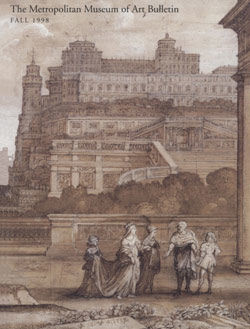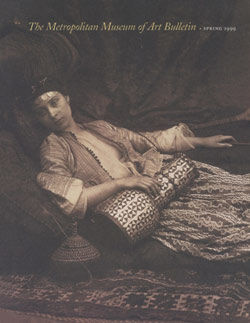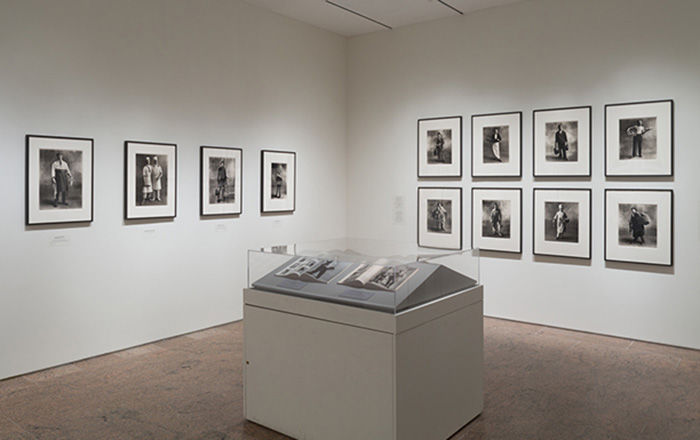Zoe, Maid of Athens
Julia Margaret Cameron British, born India
Not on view
A highly intelligent and deeply spiritual woman who appreciated the complexities of life, religion, poetry, and art, Cameron counted among her mentors and models many of the greatest minds of Victorian England—Tennyson, Herschel, Darwin, Ruskin, Carlyle, and others. When her children gave her a camera in 1863, she strove to express biblical and literary ideals of innocence, wisdom, piety, or passion that she saw embodied in her family and friends, rather than aiming for a precise likeness as most professional portrait photographers did.
Here Cameron photographed May Prinsep, her sister's adopted daughter. By allowing Prinsep's slight movement and by intentionally softening the focus, Cameron instilled a sense of breath and soul in this living apparition, for the true subject of her photograph was a poetic evocation of love and longing. "Maid of Athens, ere we part, / Give, oh, give me back my heart!" begin the verses composed by Lord Byron as he departed Greece in 1810. In the poem that inspired Cameron, Byron swore "By those tresses unconfined, / Wooed by each Aegean wind; / By those lids whose jetty fringe / Kiss thy soft cheeks' blooming tinge; / By those wild eyes like the roe, / Zoë mou sas agapo [My life, I love you]."
Due to rights restrictions, this image cannot be enlarged, viewed at full screen, or downloaded.



